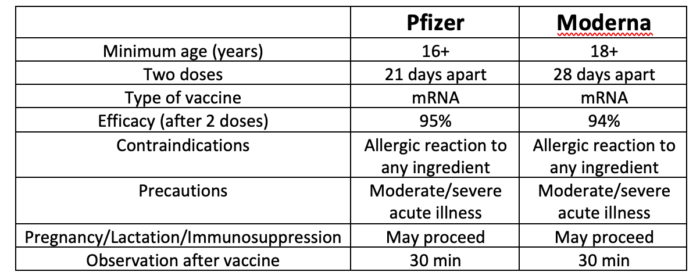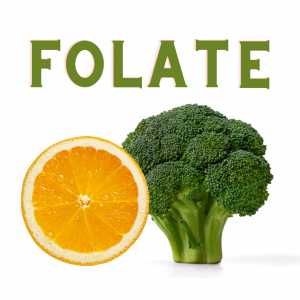MyChart for health and vaccine updates
MyChart is an important tool that allows us to keep you informed when the COVID-19 vaccine is available to you. MyChart also allows you to review your personal health information, request appointments, and communicate with us. If you already have MyChart, please be sure to follow through and review any communication you get from us. It could contain important information about the vaccine and vaccination appointments. Because the COVID-19 vaccination requires two doses, it is important that we can contact you through MyChart to ensure you receive the second dose at the correct time.
Here’s how to sign up for MyChart:
- Go to sdsm.healthmychart.org
- Register with your access code which will be sent via email or text
- If you do not have an access code, please call us to request one. Do not call the Customer Support number on the sign up webpage.
The MyChart portal will then guide you through the process!
There are many benefits to having access to MyChart. You can easily communicate with your providers without having to wait on hold. You can request prescription refills and appointments. You can even schedule some types of appointments yourself. You are able to view a generalized health summary, and obtain test and lab results. You will also have access to your After Visit Summaries from each of your appointments. Please take a few moments to sign up today!
COVID 19: My decision to receive the vaccine
By Dr. Elizabeth Williams
It goes without saying that the Novel Coronavirus has been devastating world-wide. For almost a year, everyone has had their lives up-ended. We have not seen family members, trips have been cancelled, and celebrations of big life events have either been postponed or modified. Millions of people have lost their jobs, had their salaries decreased, and paid the ultimate sacrifice by passing away or losing loved ones. The loss of life is even more heart wrenching when one considers most were not able to be with their family members at the end.
As with everyone else, my 2020 did not go the way it was envisioned. It was supposed to be a year for travel, seeing friends become married, and for me to marry the love of my life surrounded by our friends and family. Unfortunately, the reality was very different. All trips were cancelled, we worried about our family back east, and we were not able to see them for over a year. We held a small courthouse wedding with one witness present and our family watching on Zoom. No other weddings were attended. No honeymoon was enjoyed; instead we went to work daily and cared for our patients.
Despite initial relatively low COVID-19 cases in Southern California, numbers quickly turned devastating in the later months of 2020. My husband, an anesthesiologist, works in the thick of it caring for the sickest patients in our local communities. Daily, he is interacting with and performing the highest risk procedures on COVID-19 positive patients. He has witnessed first-hand different areas of the hospitals being converted so as to handle the ever-increasing number of patients. Like countless other health care workers, he selflessly faces the risk to care for others while worrying about the risk of exposing others, especially myself.
We have the great fortune of expanding our family in a few short months. Our joy is immense, but the reality is hard. I am now at higher risk for severe COVID-19 illness if I were to become ill. When at work with maintaining safety precautions and home with decisions I make (i.e. turning down dinner/gathering invitations) I am thinking not only about keeping myself and my family safe, but my responsibility to my patients and my co-workers who show up daily to care for others. It is with this responsibility to my friends, family, community, and patients that I approached the decision about receiving the COVID-19 vaccine while pregnant (24 weeks when I received my first dose). I had conversations with infectious disease doctors, obstetricians, and pediatricians. The unanimous consensus of these experts was that if I was given the opportunity, I should still receive the vaccine! I received the Pfizer-BioNTech vaccine. I was grateful and ecstatic to take this step. Yes, I had a sore arm and was fatigued the next day, but this was well worth the protection that my immune system was generating.
Many have asked if I am concerned about how quickly the vaccine was produced. Yes, the speed from discovery of the COVID-19 virus to vaccine is the quickest that has taken place in our history. However, the science that was used to develop this vaccine is far from new. Dr. Katalin Kariko, whose research is the backbone of the mRNA vaccines, started her research in the 1970s. The development of mRNA technology is not new. mRNA vaccines were being studied and developed for SARS and MERS. Clinical trials and further development was halted when these viruses were no longer a threat. Therefore, COVID-19 mRNA vaccine is not the first mRNA vaccine to undergo human trials. When one looks at how the mRNA vaccine works with our immune system, I have no concerns about adverse long-term effects.
There is no chance that I can become infected with COVID-19 from the vaccine.
The vaccine does NOT alter my cells as it is NOT getting into the DNA center.
It does NOT cross the placenta. There have been thousands of pregnant women who have received the vaccine, and in the near future we will know about possible antibodies in breast milk (a major source of protection for babies for various pathogens). For example, one registry by the University of Washington already has over 4,500 pregnant and lactating women registered who received the vaccine.
Many medical bodies also have weighed in on this topic. ACOG (American College of Obstetrics and Gynecology), American Society for Reproductive Medicine, American Academy of Pediatrics, and the CDC, all support women who are pregnant and lactating to discuss the vaccine with their medical providers and likely be offered the vaccine. I decided to proceed. I support other women who wish to proceed to be vaccinated if able. If women have questions or concerns, I fully understand and respect their inquiry. I empower these women to discuss these questions and concerns with their medical provider and to remain open as more information is gathered.
Expanding upon this, I fully support and ENCOURAGE all those able to receive the vaccine. If you have questions, please ask your medical provider or myself (I am happy to discuss your questions and concerns). It is frustrating to wait. I hear you. I wish we had more concrete information about when the next tiers of vaccine will be available. As of this writing, it is still those in the 1A tier being vaccinated. Please stay tuned to this newsletter and your medical provider for updates on when the vaccine will be available to you. When it is your turn, please step up and roll up that sleeve!
I am grateful to have been able to receive the vaccine. I support all who are able to receive the vaccine. If you have concerns, please discuss them with your medical provider.
COVID-19 Vaccine Summary and Update on Availability of Vaccines
by Dr. Geoff Lange
There is no doubt that COVID-19 has upended our world. It turned 2020 into an unforgettable year, with many looking forward to move on to 2021. In December, a glimmer of hope for this relentless, grueling illness came to light – the COVID vaccine. What is the vaccine and what do we know about it? This 10 minute video is one of the best overall explanations of the vaccines and their potential side effects.
In a nutshell, there are two types of vaccines approved by the FDA: Pfizer and Moderna. Below is a comparison of the two vaccines:

Both vaccines require two initial doses to reach the reported 95% efficacy. Future booster doses have not been established, so we don’t know if you need another dose in the upcoming years. For safety and efficacy, the CDC recommends not receiving any other vaccine 14 days prior to or after administration of the COVID-19 vaccine. There has been no research on getting both a dose of the Pfizer and Moderna vaccines; therefore, it is recommended to receive two of the same vaccine for the initial doses.
For persons who have been previously infected with COVID-19, vaccination should be deferred until you have recovered from acute illness and have met criteria to discontinue self-isolation. Current evidence supports that re-infection within 90 days is rare; it is reasonable to delay vaccination until after 90 days.
80-90% of people will have a local reaction to the vaccine: sore arm/redness/swelling. 55-83% of people will have systemic symptoms: fevers/fatigue/myalgia/chills/headache. Systemic symptoms are more common and more severe after the second dose from the increased immune response.
The vaccines do not cause you to test positive for COVID-19 (for either the nucleic acid or antigen COVID19 tests).
Some have expressed concern over the rapid development of the vaccines. mRNA has been studied for years prior to the COVID-19 pandemic for other vaccines. Much of the speed to which the COVID-19 vaccines were developed can be attributed to Dr. Zhang’s decision to share the discovery of the COVID-19 gene sequence with the scientific community at large. This interesting video and transcript of Dr. Eric Topol and evolutionary virologist Dr. Edward Holmes discusses this and other aspects of the development of mRNA and vaccinations.
Vaccination Super Station to accelerate rate of vaccinations.
San Diego County has partnered with UCSD Health to accelerate the rate of vaccination to health care workers. With a goal of providing 5,000 vaccinations per day, these super stations will speed up the delivery of vaccines and hopefully allow San Diego to move through the vaccination tiers with more speed.
We are currently vaccinating those in Phase 1: Tiers 1, 2 and 3. You can stay informed regarding the progress and of the county vaccination tiers at this link.
Remember, getting the vaccine alone is not enough to curb COVID-19. Due to limited data, current CDC guidelines recommend you continue to follow all current safety precautions after vaccination including: wearing a mask, following quarantine guidelines after possible exposure, maintaining six feet social distance, avoiding crowds, and washing hands.
There is a lot of information and personal things to consider, so please consult your medical provider if you have more questions.
For the most up to date CDC information on the COVID vaccine please visit:
https://www.cdc.gov/vaccines/covid-19/info-by-product/clinical-considerations.html
Its National Folate Awareness Month
Can you pass our quiz?
by Linda Illingworth, RDN
TRUE OR FALSE:
- Folic acid is a B vitamin found only in supplements and fortified foods.
- Folate is important for proper brain and neural tube development in pregnancy.
- Some people might need more folate due to their genetics.
- You can get enough folate from food alone.
Folate is a general term used to refer to both natural folates found in food, and synthetic folic acid used primarily in vitamins. While often used interchangeably, folate and folic acid differ in the body’s ability to utilize them.
Folate is necessary to make the building blocks for our cells DNA, is involved in energy production, maintenance of moods, and may deter some cancers. One of the most important actions of folate is the transfer of single carbon molecules to another molecule. This process is known as methylation. Methylation is used by the body for many aspects of metabolism. It is also used to detoxify substances and remove them from the body.
Some people have mutations of certain genes that regulate an enzyme needed to activate folate. That can make it important to get adequate folate and to focus more on natural sources of folate rather than synthetic folic acid. While synthetic folic acid is thought to be better absorbed, activation of folic acid requires some transformation in the liver and kidneys which may delay its utilization. You can find supplements with the active form of folate, but it is best to work with a knowledgeable practitioner to determine which one is right for you.
During pregnancy, adequate folate intake has been shown to prevent neural tube defects and congenital heart anomalies. Foods high in folate and prenatal vitamins are important tools in prevention. Low folate status has also been linked to colorectal cancer, cognitive dysfunction, and maintaining healthy homocysteine levels. When elevated, homocysteine can contribute to heart disease.
Most people can get all the folate they need from food with a well planned diet. Smoking, some medications, and inflammatory bowel diseases can limit folate absorption. In these cases a folate supplement can be of benefit. Folate supplements are best taken in a formula that contains B12. These nutrients work together and taking folate alone can disguise a B12 deficiency. We prefer formulas that contain the active or methyl forms of these nutrients, and only taking a modest dose. Focusing on food will help you get many more nutrients than you can get from a pill.
Leafy green vegetables like broccoli and spinach are great sources of folate. Citrus fruits like oranges and tangerines, and legumes like lentils and garbanzo beans are also high in folate. Some cereals like Total, breads, and baked goods have been fortified with folic acid. Fortification of foods with certain nutrients is the result of a government requirement to replace natural folate and other B vitamins that are lost during the processing of whole grains.
So did you ace the quiz?
If you answered ‘true’ to every statement, you scored 100%!
If you are struggling to eat enough foods high in folate, here’s some tips to boost folate in your diet:
- Add raw or frozen spinach to eggs; fold into scrambled eggs toward the end of cooking or simply place fried or poached egg on top of raw spinach
- Include an orange, cuties, or tangerines at breakfast or lunch
- Make tabouli salad: use quinoa, garbanzo beans, tomatoes, parsley or spinach, lemon juice and olive oil
- Blend a handful of spinach into pancake batter or a smoothie
- Include fruits high in Vitamin C to boost folate absorption: kiwi, citrus, pineapple, mango, strawberries
Stay safe San Diego.
As stay at home orders remain in effect, you can still take steps to maintain your health. San Diego Sports Medicine and Family Health Center is here for you.
Please call us to schedule important checks on your health, refill prescriptions, referrals, or any other health need. You can also request prescription refills and appointments through MyChart.
Chronic conditions that may increase risk of worse COVID-19 symptoms include diabetes, asthma, COPD, heart problems, impaired immune function, difficulty getting enough sleep, or high levels of stress. It’s important to maintain your health if you have a chronic condition. Ask us about COVID-19 testing and let us help manage your symptoms if you get sick. We are here for you whether you need a well check, advice on testing or care for COVID-19, or have any other health care need. Our Urgent Care office in Pacific Beach is always available to you. Simply call first so we can be sure to see you safely in clinic.
SDSM is dedicated to practicing all CDC recommended infection control measures. Clinics disinfect between each patient interaction with CDC approved disinfectants, employ proper social distancing measures, and follow additional CDC infection control guidelines. When visiting our clinics you can expect fewer people in waiting rooms, to wear a mask or face covering, use hand sanitizer on entry, and be screened for COVID-19 symptoms before entering patient care areas.
Don’t forget telemedicine appointments are an option that can save you time and travel. We are experts in telemedicine and can coach you on self-care at home, provide advice on medications or necessary prescriptions, and can evaluate your need for an in-person visit. We continue to recommend that anyone with cold/flu/COVID-19 symptoms and patients at increased risk of complications from COVID-19 are best addressed through telemedicine appointments.
Please call us if you feel ill, even if you believe you had no exposure to someone who has been sick. We urge you to observe stay at home measures, avoid traveling, take care to wear a mask, practice a minimum of six foot social distance from others, wash your hands frequently, and avoid touching your face, mouth, and nose. Working together, we can help you to stay safe, healthy, and thrive.
Yours in health,
The Physicians and Staff of San Diego Sports Medicine and Family Health Center

